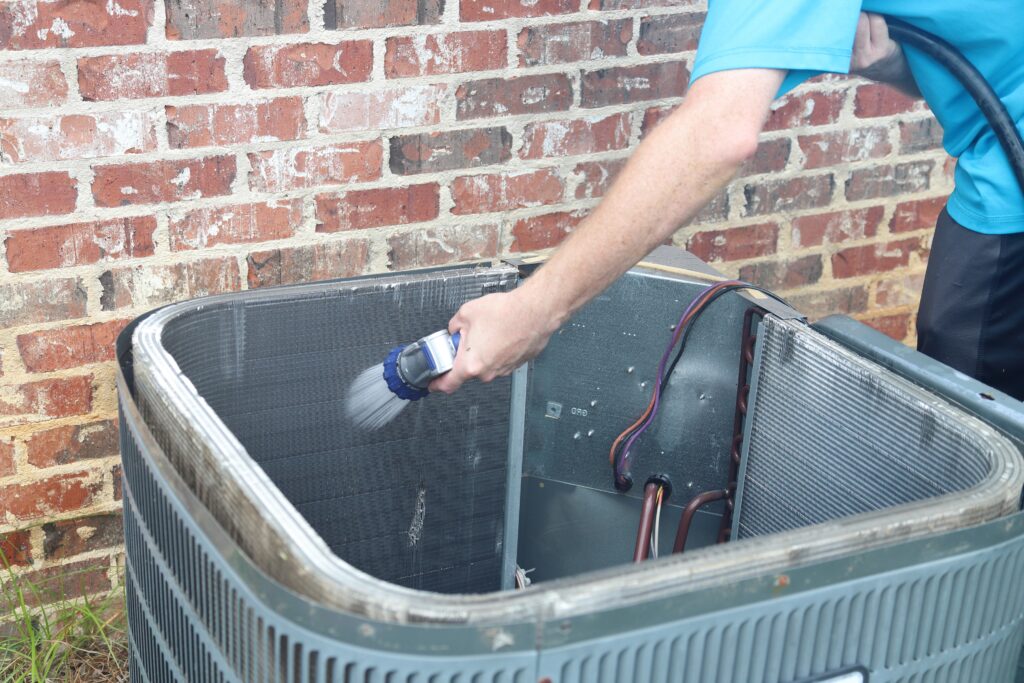
Have you ever noticed that your showers, baths, or taps take longer to heat up in the winter? While not every homeowner faces this problem, many do, and it all comes down to one of your most important plumbing appliances: your water heater.
Water heaters store, heat, and supply hot water to plumbing fixtures. When they’re outdated or no longer functioning at their best, you may notice their effectiveness and efficiency issues.
Your water heater is put to the test during the coldest months for a few reasons. Thankfully, we have a few tips to restore your hot water and keep it flowing all year.
If you can’t resolve a water heater issue on your own, don’t hesitate to call Blue Frost Heating & Cooling. We offer expert water heater repair and maintenance in West Chicago and the St. Charles area.
Why Doesn’t My Water Heater Work During Cold Weather Months?
Insulation, or the lack of it, is a significant reason your tank or tankless water heater struggles to produce hot water in the winter. Water heaters rely on pipework to deliver warm or hot water to your fixtures. If your pipes aren’t insulated, more heat escapes, allowing cold air to cool the water you want to heat.
A few other factors are at play, including the location of your water heater, its frequency of use, and whether it’s appropriately sized for your household. If your water heater is in a drafty, unfinished basement, its surrounding pipes will be cooler, and hot water has farther to travel.
Cold temperatures strain water heaters more, especially since we tend to take more hot showers or baths in the winter. This increased demand can push an old water heater to its limits.
4 Signs Your Water Heater Is About To Stop Working
When freezing air meets hot water, expansion and contraction occur. Unfortunately, this can spell disaster for old pipes, leading to cracks, bursts, or freezing.
Be on the lookout for the following signs of impending water heater failure:
- Strange noises: Loose sediment or frozen pipes can cause the water heater to make knocking or popping sounds while operating.
- Higher-than-average heating bills: While increased utility costs are expected in winter, unexplained spikes point to an inefficient water heater.
- Lukewarm water: If the water entering your tank is colder, it will take longer to reach maximum temperature.
- Not enough hot water: If you’re running out of hot water quickly, sediment buildup in the tank or an underlying combustion issue may be to blame.
How To Fix Your Water Heater: A Step-by-Step Guide
Homeowners can take a few steps to identify and resolve water heater issues. We recommend that you:
Step 1: Inspect Your Pipes
Check the main pipeline connected to your water heater. If this pipe is frozen, call a professional to thaw it out.
Step 2: Flush Your Water Heater
If you don’t find a frozen pipe, try flushing your water heater by turning off its power supply and opening the drain valve, usually located at the bottom of the unit. Once the tank is empty, close the valve and refill the tank.
Step 3: Adjust Your Thermostat
Are you unhappy with your water heater’s temperatures? Try turning up its thermostat.
Step 4: Consider Piping Insulation
While not a DIY solution, professional pipe insulation goes a long way toward saving energy and reducing heating costs.
Schedule Water Heater Services With Blue Frost Heating & Cooling
As a crucial part of home comfort, water heaters need to be properly maintained to ensure they work year-round. Our comprehensive maintenance plan guarantees that your water heater is in top shape before winter. Trust our highly trained technicians and their exceptional customer service, backed by transparency, honesty, and integrity.
Your Comfort and Safety is Our Business. Schedule an expert water heater repair for your West Chicago, IL, home today!






